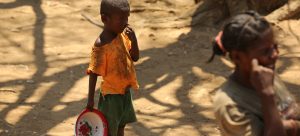Africa: A Seat At the UN Security Council – a State On the Brink

Debating Ideas reflects the values and editorial ethos of the African Arguments book series, publishing engaged, often radical, scholarship, original and activist writing from within the African continent and beyond. It offers debates and engagements, contexts and controversies, and reviews and responses flowing from the African Arguments books. It is edited and managed by the International African Institute, hosted at SOAS University of London, the owners of the book series of the same name.
Somalia’s President Hassan Sheikh Mohamud reportedly survived an assassination attempt in March 2025, a stark reminder of the country’s ongoing fragility, but one that barely registers in international headlines. Ironically, while Somalia began a two-year term at the UN Security Council this year, the government’s reach within the country is extremely limited. The vast majority of territory is contested between rival government entities and the militant Islamist group, Al Shabaab, whose own establishment predates the government and which generates considerable resources through an efficient taxation system.
This contradiction reflects years of external engagement focused more on security imperatives and strategic interests than Somali peace and sovereignty. Today, as global geopolitical competition and regional rivalries intensify, Somalia’s strategic location in the Horn of Africa places it at the intersection of increased counterterrorism efforts, migration control strategies, and maritime security agendas. Somali elites are adept at leveraging these external interests for their domestic ambitions, focused nearly entirely on their respective re-election.
The narrowing of international policy to counterterrorism and security deals – at the expense of governance and meaningful reform – risks deepening Somalia’s fragmentation. It is also likely to further empower Al Shabaab, which, despite its unpopularity, draws strength from elite self-interest, predatory governance, and perceptions of foreign control. To stem these dynamics, international actors should support – not script – a Somali-led political reset that is inclusive, representative, and rooted in legitimacy.
From state building to the political marketplace
How did we get here? The London Conference in 2012 marked the beginning of a major state building programme with billions poured into security and governance. But rather than build inclusive institutions, these investments fostered a political marketplace. Power is now traded through access to domestic and foreign funds – not earned through public legitimacy or service delivery.
This system benefits a narrow elite class, well-versed in donor language, and who rotate between government ministries, international agencies and commercial enterprises. These ‘gatekeepers’ are accountable outwardly, not inwardly – motivated less by public service than by personal gain.
While President Mohamud’s administration exemplifies these dynamics, the issues are structural. Governance in Somalia is shaped by internal incentives and external support that reward short-term loyalty and security partnerships over institutional development. Corruption, political violence, and authoritarian practices are not deviations – they have become embedded features of governance.
Moreover, the inclusion of Ethiopian and Kenyan peacekeeping forces – neighbours with long and fraught histories with Somalia – as part of the UN-mandated international peacekeeping force signals to Somali people that foreign interests override Somali consent. Ethiopia in particular evokes memories of occupation and hostility. Far from being perceived as neutral, these forces feed Al Shabaab’s narrative that Somalia is under foreign control.
Al Shabaab: a symptom of governance failure
Al Shabaab’s persistence is better understood as a response to governance failure rather than ideological support. Similar to the Taliban in pre-2021 Afghanistan, the group operates more credible courts, enforces laws, and collects taxes, estimated at nearly US$200 million in 2020. It has consistently shown it can adapt and learn from its mistakes. Recent tactics have emphasized negotiation and local deal-making over indiscriminate violence: for example, offering deals to government soldiers and clan militias they capture rather than killing them. According to the Hiraal Institute, the group increasingly relies on non-lethal coercion, clan-based accommodation, and local engagement. Even traditional elders from the president’s own subclan have aligned with Al Shabaab.
A notable example of the group’s diverse strategies is its increasing use of social media to engage younger audiences. In a recent interview with the popular Somali poet, Nageeye Ali Khaliif, who recently joined the group, Nageeye’s language is accessible, colloquial, and clearly aimed at appealing to younger audiences and to normalize Al Shabaab. In a compelling analysis, the Somali scholar, Ahmed Ibrahim, argues that his decision to join the group reflects the ‘poverty of the political scene and the political choices open to young people in Somalia today.’
The degree to which the group is ideologically driven has been questioned for some years, with some suggesting it resembles more a business or mafia organization. Regardless, what we see is its tactical evolution aimed at consolidating social control while avoiding unnecessary friction with local communities.
Military setbacks and political paralysis
Since early 2022, the federal government joined and then encouraged clan militias to embark on a concerted offensive against Al Shabaab. Initially, it had both popular and international support, but as Somali scholar Abdi Fatah Tahir later reflected, this vigilantist approach was always likely to fail, and worse, promoted an arms race between different clans.
Despite the offensive, Al Shabaab has gained ground in recent weeks and months. In January 2025, it attacked a military base in Ceel-Dheer, prompting government forces to retreat. In February 2025, it carried out coordinated raids on police stations and checkpoints in Marka and Baidoa. In March, it struck another military base in Lower Shabelle region. These attacks reflect growing tactical sophistication and shrinking state control – threatening capture of the capital Mogadishu. All at a time when funding for the problematic peacekeeping mission is being scaled down.
Meanwhile, the government is consumed by internal fighting. In December 2024, the Federal government attacked and attempted to oust the President of Jubbaland – an operation that failed, and that underscored elite focus on extending their terms rather than governing. External security interests and domestic political elites find common cause in playing up security threats and playing down the dysfunctional and destructive relationships that have led to this point.
The way forward
For Somali citizens, daily life means navigating between a corrupt state and a coercive insurgency – while also contending with abuses by the foreign peacekeeping forces that are supposed to protect them. Local research shows that everyday survival requires managing multiple authorities on the ground and not choosing sides in a battle that cannot be won. Somalis in general do not support Al Shabaab, but they also see a government and security system built on external interests and elite corruption, with no credible alternative in sight.
Despite this context, international policy remains remarkably unchanged. The USA, Turkey and others continue to support drone strikes and counterterrorism measures. Europe focuses on maritime security and migration deterrence. For Somalis, who avidly follow international news, these developments have echoes of Afghanistan’s collapse as well as parallels in recent developments in Syria. The pattern is familiar: security-first policies, little attention to local dynamics, and eventual collapse. This outcome is not inevitable but there are plenty of warning signs.
The path forward must centre Somali agency, rather than external interests. The international community should support, not script, a Somali-led political reset, not just risk containment, by supporting a new dialogue process. Many Somalis point to the 2000 Arta Conference – the last genuinely Somali-owned national process – as a model. It had its shortcomings, but it emphasized dialogue, local ownership, and broad participation.
Today, there is growing demand for something similar: a national process involving credible elders, civil society, and wide representation, and that explores conditional engagement with Al Shabaab within this context. Such an exercise must avoid meaningless exercises set up to appease foreign interests.
Somalia’s current trajectory mirrors the strategic miscalculations seen in Afghanistan and elsewhere. Without a course-correction, we may soon watch another preventable collapse – only to later claim we were caught by surprise.
Nisar Majid is Research Director of the LSE-PeaceRep Somalia programme at the London School of Economics and co-author of Famine in Somalia. Khalif Abdirahman is a Somali activist, senior field researcher at the LSE-PeaceRep Somalia. programme. with considerable experience of community engagement. Marika Theros, is an academic at LSE and practitioner, having advised governments, international organizations, and civil society on peace processes in complex conflict zones.
By African Arguments



